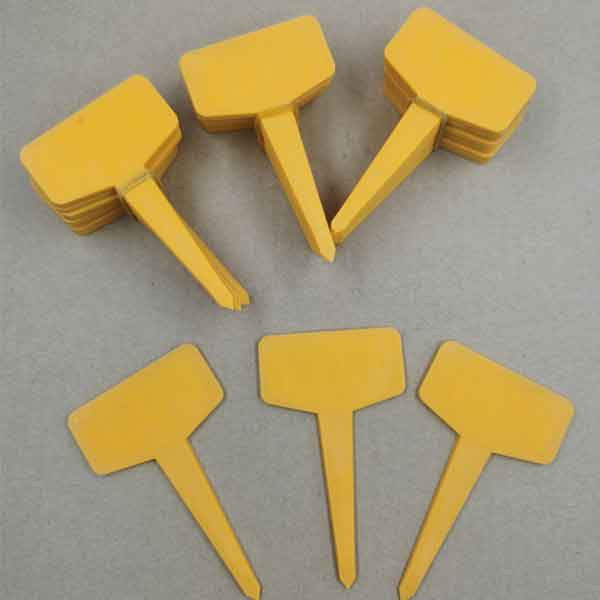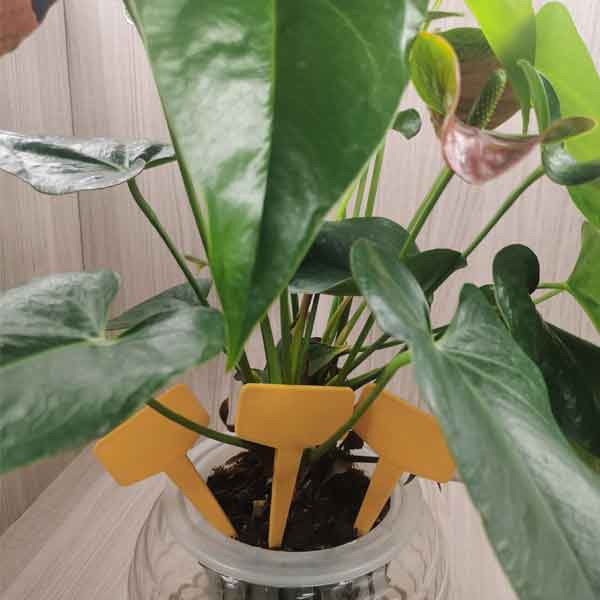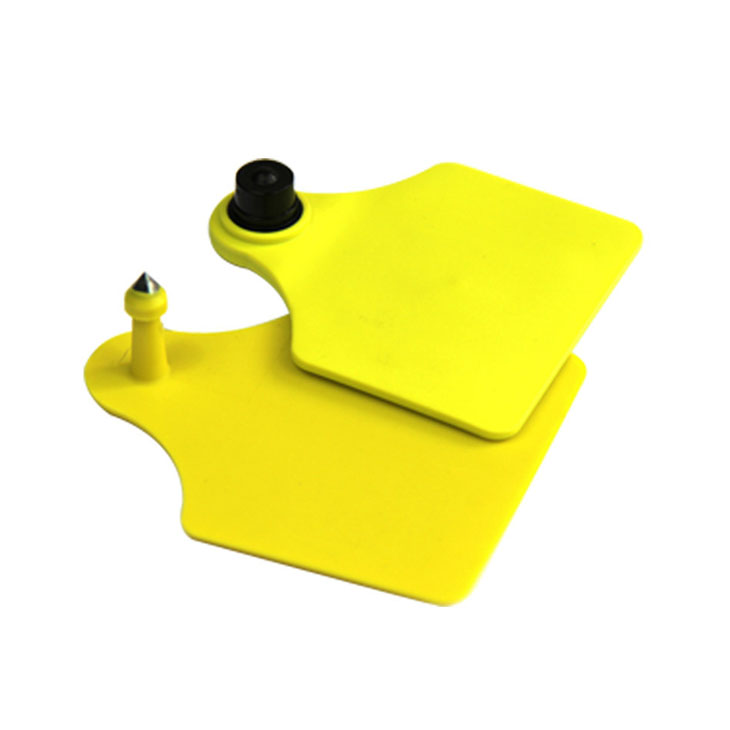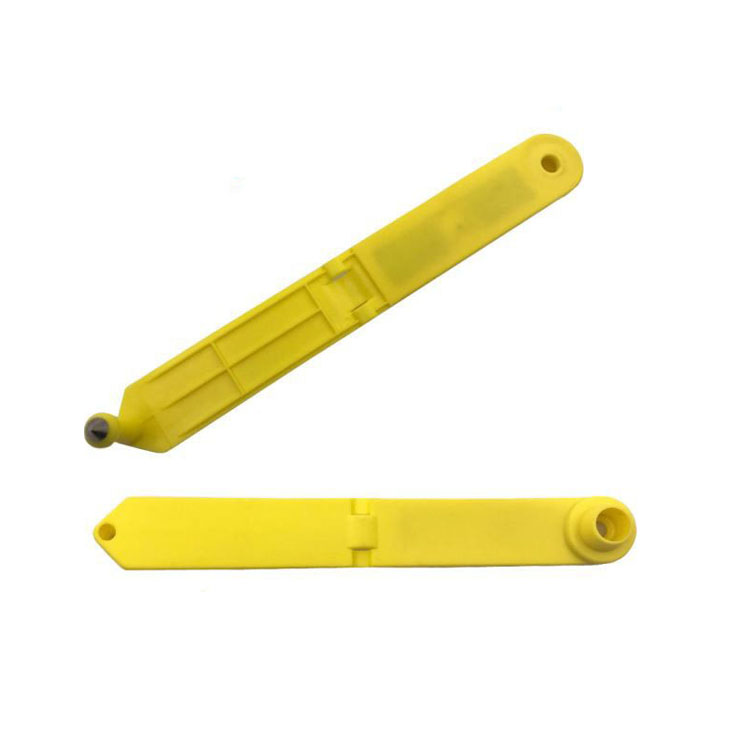In today’s rapidly evolving world of smart technology, businesses are looking for ways to incorporate automation into their operations to improve efficiency, reduce human error, and enhance overall productivity. The horticultural industry, in particular, has embraced such technologies, and one of the most innovative developments in plant management is the use of RFID Potted Plants Management Tags. These small, yet powerful tools are transforming how potted plants are tracked, monitored, and maintained across nurseries, retail environments, and corporate landscapes.
In this article, we explore the benefits of RFID Potted Plants Management Tags and how they are revolutionizing plant care and supply chain management.
What Are RFID Potted Plants Management Tags?
RFID, or Radio Frequency Identification, is a technology that uses radio waves to communicate between a tag and a reader. In the case of potted plants, RFID tags are small, durable chips attached to the pots or the plants themselves. These tags carry unique identifiers that can be scanned using RFID readers to gather data on the plant’s health, growth, and environmental conditions. The tags are typically embedded in or attached to the potted plant containers, where they can withstand environmental stresses like moisture, temperature changes, and handling.
RFID Potted Plants Management Tags are an essential tool for automating plant tracking and enhancing inventory management. These tags can store a variety of data, such as planting dates, watering schedules, fertilizer requirements, and even information about pest control treatments. The ease with which RFID technology integrates into existing infrastructure makes it an attractive solution for nurseries, garden centers, and landscape management companies alike.

Streamlining Inventory Management
One of the most significant advantages of using RFID Potted Plants Management Tags is the ability to streamline inventory management. In traditional plant management practices, cataloging plants by hand or using barcodes can be time-consuming, prone to human error, and inefficient for large-scale operations. RFID technology simplifies this process by enabling automated tracking of each individual plant.
With RFID tags, each potted plant is assigned a unique identifier, which can be easily scanned without the need for direct line-of-sight, unlike barcodes. This capability ensures that each plant is easily tracked as it moves through the various stages of the supply chain, from nurseries to retail locations, and even as they reach their final destinations. The system can automatically update the status and location of the plants, eliminating the need for manual counting and data entry. This results in fewer errors, faster processes, and a more accurate inventory system.
Improved Plant Health Monitoring
RFID Potted Plants Management Tags go beyond simple inventory tracking by enabling plant care professionals to monitor the health and condition of their plants in real-time. Modern RFID tags are capable of integrating with environmental sensors, such as temperature, humidity, and soil moisture sensors. By gathering data from these sensors, RFID tags provide a comprehensive overview of each plant’s current status, allowing for better decision-making when it comes to watering, fertilizing, and pest control.
This capability is especially beneficial for large-scale operations where it can be difficult to individually assess the needs of each plant. RFID-enabled sensors can alert managers to plants that are stressed or require special attention, ensuring that no plant is overlooked. As a result, plant health is more easily maintained, and the likelihood of crop loss due to neglect or environmental stress is minimized.
Enhanced Tracking for Quality Control
Another key benefit of RFID Potted Plants Management Tags is their role in quality control. By tracking the movement of plants through every stage of the supply chain, RFID tags help ensure that plants are being cared for properly at each stage, from production to distribution. With RFID tags, it’s easier to maintain a high level of quality control, as managers can quickly identify if plants have been exposed to conditions outside of acceptable parameters, such as excessive heat or improper watering.
Moreover, RFID Potted Plants Management Tags can also assist in identifying and tracing plant diseases, pests, or other issues. If a problem arises in a batch of plants, RFID tags can help isolate the affected plants, trace their origin, and assess the scope of the issue. This can reduce the spread of pests and diseases, allowing for more effective treatments and minimizing losses.
Efficiency and Cost Savings
The integration of RFID Potted Plants Management Tags significantly improves operational efficiency, which directly translates into cost savings. By automating plant tracking, organizations can reduce the time spent manually counting, sorting, and managing plants. RFID technology reduces the need for human labor in these areas, which frees up resources for more value-added tasks.
In addition, RFID tags help minimize waste. For example, with the ability to monitor plant health and environmental conditions closely, businesses can adjust watering schedules, reduce over-fertilization, and ensure that plants are maintained in optimal conditions. This not only saves water, fertilizers, and other resources but also helps create a more sustainable operation in the long term.

Simplified Plant Supply Chain Management
RFID Potted Plants Management Tags also simplify plant supply chain management. For nurseries and garden centers, maintaining an efficient flow of plants from growers to distributors to retail outlets is essential. RFID tags provide a comprehensive, real-time view of the entire supply chain. With the ability to track plants as they move from one location to another, businesses can ensure that plants are always in the right place at the right time.
This visibility enables improved forecasting, allowing businesses to adjust their stock levels according to demand. For instance, if a particular type of plant is selling faster than anticipated, RFID tracking allows store managers to quickly restock their inventory from nearby nurseries. On the flip side, slow-moving stock can be easily identified, reducing the risk of overstocking and minimizing waste.
Improved Customer Experience
RFID Potted Plants Management Tags are not just beneficial for businesses; they also enhance the customer experience. Retailers can use RFID technology to provide detailed information to customers, such as care instructions, planting tips, and plant origin. With RFID-enabled kiosks or mobile apps, customers can scan a plant’s RFID tag and instantly access a wealth of information about the plant’s care needs.
Additionally, RFID tags help ensure that the right plants are available in the right quantities, reducing the likelihood of stockouts. When customers can find the plants they want in stock, and easily get the information they need to care for them, their shopping experience becomes much more satisfying. This increased level of service can result in higher customer satisfaction and loyalty.
Sustainability and Environmental Benefits
Finally, RFID Potted Plants Management Tags contribute to sustainability efforts in the horticultural industry. By enabling better tracking and management of plants, RFID tags help businesses optimize resources and reduce waste. For example, RFID technology can help reduce water consumption by providing real-time data on soil moisture levels, ensuring that plants are watered only when necessary. It also helps in reducing the need for pesticides, as pest outbreaks can be detected early, allowing for more targeted and less harmful interventions.
Additionally, RFID tags can help reduce the carbon footprint of the supply chain. With more efficient tracking and inventory management, companies can minimize unnecessary transportation, thus reducing fuel consumption and emissions. This commitment to sustainability aligns with the growing trend of environmentally conscious consumers and businesses.
Conclusion
RFID Potted Plants Management Tags are transforming the way plants are managed, tracked, and cared for. From improving inventory accuracy to enhancing plant health monitoring, the benefits of this technology are far-reaching. By automating processes, reducing human error, and providing real-time data, RFID tags enable businesses to operate more efficiently, save costs, and enhance the customer experience.
As the demand for smart technology grows, it is likely that RFID technology will continue to play a pivotal role in the horticultural industry. Whether you are a nursery manager, a landscape professional, or a retail garden center owner, integrating RFID Potted Plants Management Tags into your operations can provide a competitive edge and help ensure the success of your plant management strategy. With the environmental, economic, and operational benefits they offer, RFID tags are undoubtedly a game-changer for the plant care industry.




